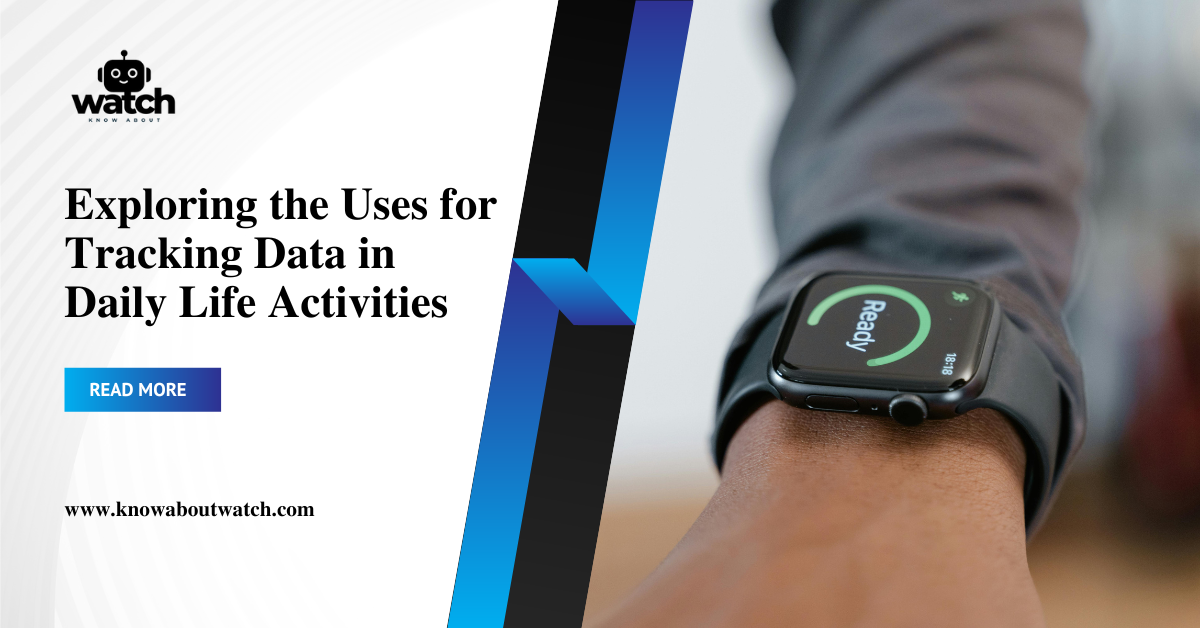Smartwatches have significantly transformed the uses for tracking data. They offer an array of benefits for individuals seeking to improve their overall well-being. The integration of smartwatch technology has revolutionized fitness monitoring by providing real-time insights into heart rate and activity levels during workouts. This functionality aids in fitness and health tracking on smartwatches. It allows users to make informed decisions about their exercise routines and overall physical activity.
Moreover, smartwatches play a crucial role in smartwatch health tracking by enabling users to track their sleep patterns and quality. By leveraging the data collected through sleep-tracking features, individuals can gain valuable insights into their rest patterns. This, in turn, can contribute to a better understanding of their overall health. This feature supports the goal of achieving improved well-being by addressing any potential issues related to sleep quality or duration.
The seamless integration of these capabilities into daily life activities underscores the significance of smartwatches in promoting healthier lifestyles through enhanced fitness monitoring and sleep tracking.
Personalized Healthcare

Data-Driven Personalized Care
In the realm of personalized healthcare, smartwatch data plays a pivotal role. It enables healthcare professionals to deliver tailored and individualized care. By leveraging the wealth of health metrics and patterns collected through smartwatches, healthcare providers can gain valuable insights into an individual’s well-being. This data-driven approach allows for the customization of healthcare solutions based on real-time information. It leads to more effective and personalized care plans.
The utilization of smartwatch data in healthcare settings empowers professionals to offer customized health management strategies. These strategies align with each patient’s unique needs. This personalized approach enhances the quality of care and increases patient engagement and satisfaction by addressing their specific health concerns.
Early Intervention Possibilities
Furthermore, the integration of smartwatches in healthcare opens up possibilities for early intervention and proactive health management. By continuously monitoring key health indicators, such as heart rate, activity levels, and sleep patterns, individuals and healthcare providers can identify potential health issues at an early stage. This proactive approach enables timely interventions, ultimately contributing to better health outcomes and improved overall well-being.
The seamless integration of smartwatch technology into personalized healthcare signifies a paradigm shift towards more proactive and individualized approaches to wellness management.
Empowerment through Data

Harnessing Information for Health Management
In today’s data-driven world, individuals have the opportunity to take control of their well-being through the power of information. Empowerment through data is a fundamental aspect of modern health management, enabling people to actively engage in monitoring and improving their health. By utilizing smartwatch technology and the valuable insights it provides, individuals can take charge of their health and make informed decisions to lead healthier lifestyles.
Making Informed Choices for Better Health
The wealth of data collected by smartwatches offers data-driven empowerment. It provides users with wellness insights that can guide their choices towards improved health outcomes. These insights allow individuals to gain a deeper understanding of their overall well-being. They facilitate the adoption of healthier habits and proactive measures based on real-time information.
Future Wellness Trends

Integration in Healthcare
As we look ahead to future wellness trends, the integration of smartwatches in healthcare is poised to play a pivotal role. It will shape the landscape of personalized health management. The seamless incorporation of smartwatch technology into healthcare settings is anticipated to drive significant advancements. These advancements will change how individuals monitor and manage their well-being. By leveraging the data insights provided by smartwatches, healthcare professionals can offer more tailored and proactive care plans. This leads to improved health outcomes.
The integration of smartwatches in healthcare is expected to foster a more data-driven approach to wellness. It allows for the early detection of potential health issues and the implementation of timely interventions. This proactive stance towards health management has the potential to revolutionize preventive care strategies and enhance overall patient well-being.
Advancements in Personal Wellness
Looking forward, wellness advancements will continue to be propelled by ongoing developments in smartwatch technology. These advancements are set to offer individuals new possibilities for managing their personal wellness and health. As smartwatches evolve, they will provide users with even more sophisticated tools for monitoring their fitness, sleep patterns, and overall well-being. The future promises an array of innovative features that will empower individuals to proactively engage in their health management journey.
The upcoming health trends indicate a shift towards a more holistic approach to personal wellness, with smartwatches serving as integral companions in this pursuit. The continuous enhancements in smartwatch capabilities are expected to further enable individuals to make informed decisions about their lifestyle choices and take proactive measures for maintaining optimal health.
Enhancing Wellness with Smartwatches
Incorporating smartwatches into daily routines enhances wellness by providing valuable health insights and personalized care. The uses for tracking data on smartwatches extend beyond convenience, offering tangible benefits for individuals seeking to improve their overall well-being. Data tracking benefits include real-time monitoring of fitness and health metrics, empowering users to make informed decisions about their lifestyle choices. By leveraging the information obtained from smartwatches, individuals can proactively manage their health, leading to a healthier and more balanced lifestyle.
People Also Ask
What is data tracking used for?
Data tracking is utilized for a variety of purposes, primarily to monitor and analyze behaviors, trends, and performance over time. In business, it helps organizations understand customer interactions, optimize marketing strategies, and improve product offerings. In health and fitness, data tracking is used to monitor physical activity, dietary habits, and overall wellness, enabling individuals to make informed lifestyle choices.
Why do we need to track data?
Tracking data is essential for making informed decisions based on empirical evidence rather than assumptions. It allows organizations and individuals to identify patterns, measure progress, and evaluate the effectiveness of strategies or interventions. By analyzing tracked data, stakeholders can adjust their approaches to enhance outcomes, whether in business, healthcare, or personal development.
What is the use of tracking?
The use of tracking encompasses various applications, including performance measurement, behavior analysis, and resource management. In a business context, tracking can help assess marketing campaign effectiveness, customer satisfaction, and operational efficiency. In personal contexts, such as fitness or health, tracking can provide insights into habits and progress, motivating individuals to achieve their goals.
What is the function of data tracking?
The primary function of data tracking is to collect and analyze information over time to inform decision-making processes. This involves gathering data points, storing them for future reference, and using analytical tools to derive insights. Data tracking can also facilitate real-time monitoring, allowing for immediate adjustments based on current performance or behavior.
What is the purpose of tracking records?
The purpose of tracking records is to maintain a comprehensive history of activities, transactions, or behaviors for accountability and analysis. In various fields, such as healthcare, education, and business, tracking records helps ensure compliance with regulations, supports quality improvement initiatives, and provides a basis for reporting and evaluation. It also aids in identifying trends and making data-driven decisions that can lead to better outcomes.

